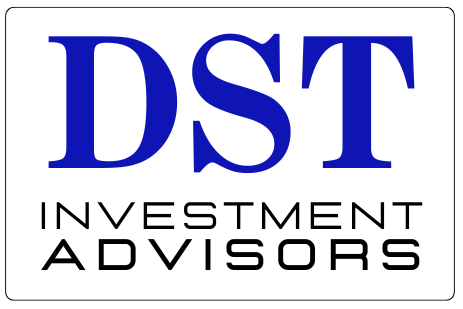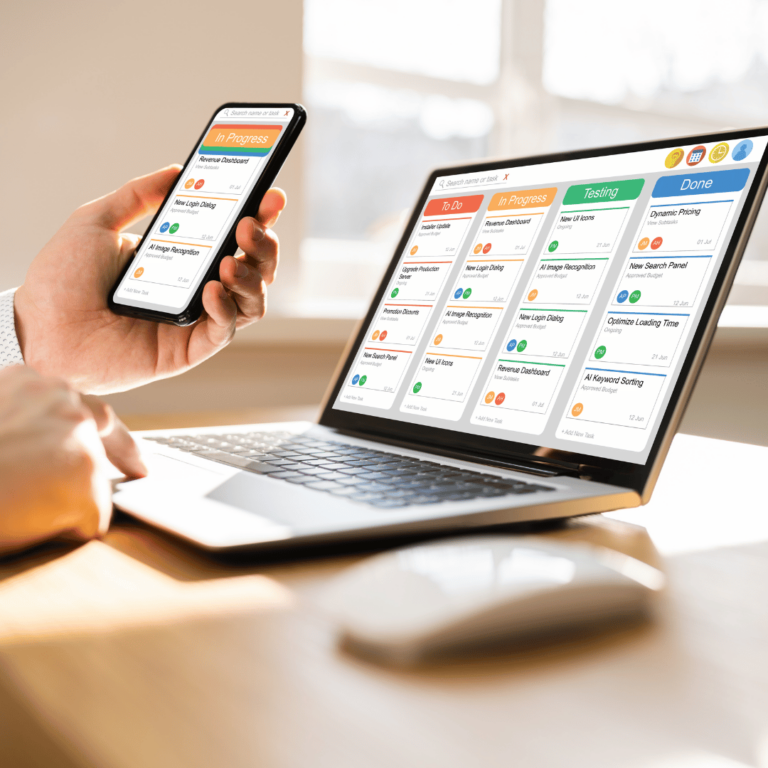Qualified Intermediary
a.k.a A 1031 Exchange Accomodator
What's a Qualified Intermediary? When Is Their Involvement Necessary?
A Qualified Intermediary (QI) plays a crucial role in the 1031 exchange process, primarily ensuring that the exchanger adheres to the stringent IRS 1031 exchange guidelines, thereby safeguarding the exchange from disqualification.
Throughout the exchange process, the QI undertakes three primary responsibilities:
Holding the proceeds from the sale of the relinquished property in escrow, as the exchanger is prohibited from taking possession of these funds during the exchange process.
Managing all documentation related to the exchanger’s identification of replacement property or properties within the mandatory 45-day identification period.
Facilitating the purchase of the replacement property by transferring the exchanger’s funds to the title company or seller.

Why You Should Use A QI
Investors typically enlist the services of a Qualified Intermediary when executing a 1031 exchange. The sole instance where the use of a QI is not mandatory in a 1031 exchange is if funds are processed on the same day, an infrequent occurrence. Nonetheless, even in such cases, it can be advantageous to engage a QI, as they offer valuable guidance and expertise to assist exchangers in navigating the intricate exchange process. Moreover, they help mitigate the risk of critical errors that could jeopardize the 1031 exchange.
In situations where funds from a relinquished property are processed on the same day, there is a risk that the wire transfer may not be initiated on time, potentially causing a delay that could lead to the disqualification of the exchange. The IRS may interpret the exchanger as taking possession of the 1031 funds, thereby nullifying the exchange and leaving the exchanger with a substantial tax liability on the capital gains from the proceeds of the relinquished asset.
During a 1031 exchange, two crucial deadlines must be met. Firstly, exchangers are granted 45 calendar days to identify up to three replacement properties, commencing from the date of closing on their relinquished asset. Secondly, exchangers must complete the closing on one or more of these replacement assets within 180 calendar days from the date of closing on the relinquished property. Throughout this timeframe, a Qualified Intermediary works diligently to secure and manage your funds in escrow and assists by meticulously completing all IRS-required paperwork to ensure the proper execution of the exchange.
Some of the forms that your QI prepares to ensure compliance with IRS rules and regulations include:
- Formal identification of replacement properties within the 45-day window following the closure of the relinquished property.
- A comprehensive account detailing how the 1031 exchange funds will be reinvested.
- 1099 forms, which are submitted to both the exchanger and the Internal Revenue Service.
While the QI takes charge of preparing these documents, it remains the responsibility of the exchanger to submit the paperwork to the IRS. In the following section, we will delve into methods that investors can employ to select a reputable QI.
How To Choose a Qualified Intermediary
Selecting the appropriate Qualified Intermediary is of equal significance to choosing suitable replacement properties to successfully execute your 1031 exchange. Your chosen Qualified Intermediary should securely hold the proceeds from the sale of your relinquished asset in an FDIC-insured bank account. Additionally, they should possess a thorough understanding of the intricacies involved in preparing and submitting the exchange documentation mandated by the IRS. A knowledgeable QI should also be proficient in orchestrating the purchase of a replacement property and initiating a wire transfer to the title company.
Here are several factors to contemplate when opting for a QI to facilitate your exchange:
Business History: Typically, QIs with a track record of longevity in the industry can provide their clients with a deeper reservoir of experience and expertise regarding IRS 1031 rules and regulations.
Number of Exchanges Completed: The volume of exchanges conducted in the past year or over the last five years often correlates with a heightened familiarity with the exchange process.
Number of Non-Traditional Exchanges Completed: A QI with an extensive history of handling more intricate 1031 exchange scenarios may offer a broader skill set and solutions.
Handling of Funds: It is imperative that the proceeds from your relinquished property are held in either a Segregated Qualified Trust Account or a Segregated Qualified Escrow Account.
Financial Institution Backing: Inquire whether your escrow account will be situated at a financial institution insured by the FDIC.
Insurance Coverage: Unlike professionals in regulated fields like stockbrokers, Qualified Intermediaries lack regulatory oversight. A QI that carries insurance coverage could potentially safeguard your funds from fiduciary misconduct. Your chosen QI should be able to provide fidelity bond coverage and Errors & Omissions (E&O) insurance.
Upon conducting this comprehensive due diligence, you will be well-prepared to select a Qualified Intermediary. Continue reading to gain a deeper understanding of the role QIs play throughout the 1031 exchange process.
How Qualified Intermediaries guide exchangers through the exchange process:
Adherence to Deadlines: The exchange process is governed by stringent deadlines, most notably the 45-day identification period and the 180-day closing period. A proficient Qualified Intermediary aids in ensuring that your exchange remains on course, facilitating your ability to meet these critical deadlines.
45-Day Identification Period: Your Qualified Intermediary assists in the preparation of all documentation related to potential replacement properties. This paperwork must be signed and delivered on or before the 45th day following the closing of your relinquished asset, irrespective of weekends or holidays.
180-Day Closing Period: Commencing from the day of the closing of your relinquished property, your Qualified Intermediary verifies your compliance with all requirements related to replacement properties. Once you have selected a replacement asset, your QI facilitates the acquisition of the property.
Holding Exchange Proceeds: 1031 exchange investors are precluded from taking possession of any funds arising from the sale of their relinquished assets; these funds must be held by your QI. Upon the closure of the sale, exchangers assign the bill of sale to the QI, who subsequently transfers the funds into an escrow account until they are required for the closing of a replacement property.
Preparation of Exchange Documentation: As you progress through the exchange, your Qualified Intermediary assumes responsibility for the preparation of all exchange documents and validates their accuracy. This paperwork encompasses Assignments of Purchase, Sale Agreements, and all documentation pertinent to the exchange.
Lastly, it is essential to emphasize that your Qualified Intermediary must maintain independence in the exchange. Their role should be limited to providing guidance pertaining to the exchange itself and should not encompass investment advice, as that falls outside their area of expertise.
How Does a Qualified Intermediary Operate?
Following the selection of a Qualified Intermediary, the initial step entails the execution of an Exchange Agreement, a legally binding contract that outlines the relationship between the two parties. Before signing this agreement, it is advisable to have your attorney review it to ensure that its language aligns with any insights gained through your due diligence process.
Once a signed Exchange Agreement is in place, the 1031 exchange process can commence. It is imperative that these documents are signed before the closing of the sale of the relinquished asset to ensure strict adherence to IRS guidelines. Failure to do so may result in a conventional sale instead of a 1031 exchange, leaving you responsible for substantial capital gains taxes.
Throughout the exchange process, your chosen Qualified Intermediary assumes a pivotal role. Qualified Intermediaries undertake a range of responsibilities, from managing your sale proceeds to preparing all the requisite documentation to meet exchange requirements.
Who can be your QI?
Exchangers are mandated to enlist the services of a Qualified Intermediary (QI) to facilitate their 1031 exchange. However, there are stringent criteria governing who can and cannot serve as your QI. Let’s begin by examining the latter.
The Internal Revenue Service (IRS) specifies that your QI cannot be an employee or a family member. Moreover, you are prohibited from engaging anyone with a direct financial association with the taxpayer undertaking the 1031 exchange. Consequently, irrespective of a family member’s financial expertise or qualifications, they are ineligible to act as your QI. This restriction also applies to employees; for instance, your Chief Financial Officer (CFO) cannot assume the role of your Qualified Intermediary.
Furthermore, your QI should not have had any direct financial dealings with you in the preceding two years. Similarly, if you have a trust with beneficiaries, they are disqualified from serving as your QI.
Lastly, any agent directly contracted by you cannot fulfill the role of your QI. This exclusion encompasses numerous professionals whose expertise you frequently rely on, including your real estate agent, investment banker, financial advisor, accountant, and attorney. Individuals affiliated with these agents are likewise ineligible.
However, there are a few exceptions to these restrictions. Agents who engage in tasks such as forming trusts, establishing escrow accounts, or procuring title insurance can serve as Qualified Intermediaries, as their responsibilities are categorized as routine financial services. This exception applies to agents acting as QIs for 1031 exchanges that result in no gain or loss during the transaction, provided these agents have not undertaken any work for the taxpayer in the past two years.
Now that we have identified who cannot fulfill the role of your Qualified Intermediary, let’s examine who can assume this responsibility.
Individuals falling outside the aforementioned parameters are eligible to serve as your Qualified Intermediary. However, they must possess a QI-Employer Identification Number (EIN), a unique identifier assigned by the IRS to the Qualified Intermediary. This number is necessary for releasing payments to the withholding agent, who is responsible for disbursing payments upon the completion of the exchange. To provide the withholding agent with a Form W-8IMY, the QI must possess a QI-EIN.
Furthermore, your QI will be required to complete several other IRS forms, including:
- Form 1042
- Form 1042-S
- Form 1042-T
- Form 1099
- Form 945
- Form 1096
Each of these forms necessitates the use of a QI-EIN. Qualified Intermediaries obtain their QI-EIN by submitting Form SS-4 to the IRS.
Is My Capital Secure with a Qualified Intermediary?
Regrettably, the Qualified Intermediary (QI) sector lacks federal regulation or oversight, and only a limited number of states mandate licensure or insurance for Qualified Intermediaries.
Nevertheless, there are methods to guarantee the safety and protection of your capital while it remains in the custody of your QI. This checklist of questions can aid in ensuring that your proceeds are shielded until they are required for the purchase of a replacement property:
Internal Controls: Inquire whether your Qualified Intermediary has established internal processes and audit controls to assure the security of your funds.
Account Type: Ask whether your funds are held in segregated, FDIC-insured Qualified Trust Accounts or Qualified Escrow Accounts.
Online Access: Determine whether exchangers have online access to view these accounts.
Liquidity: Ascertain whether funds remain liquid throughout the holding period.
Account Statements: Inquire whether exchangers receive daily or monthly statements for their escrow accounts.
It is imperative for exchangers to conduct thorough due diligence when selecting a Qualified Intermediary to ensure the choice of an ethical and responsible QI. Many Qualified Intermediaries are affiliated with the Federation of Exchange Accommodators (FEA), a national industry trade organization for QIs. FEA members adhere to a stringent code of ethics, which may alleviate some of these concerns during the exchange process.
How Can I Retrieve My Funds from My Qualified Intermediary (QI)?
Numerous circumstances can evolve during a 1031 exchange. Deals may occasionally collapse, and exchangers may opt for a different course of action. If a Qualified Intermediary (QI) is already in possession of your proceeds from a relinquished asset, it is vital to understand the procedures for retrieving your funds.
Stringent penalties are in place to restrict the circumstances under which Qualified Intermediaries can disburse funds held in exchange accounts. U.S. Treasury Regulations Section 1.1031(k)-1(g)(6), often referred to as g(6), specifies that the taxpayer is prohibited from “receiving, pledging, borrowing, or otherwise obtaining the benefits of money or other property before the end of the exchange period.”
Exchangers must adhere to the requirements of 1031 exchange regulations when collaborating with a QI. These regulations encompass various safe harbors, with the most significant being a written agreement established between the QI and the exchanger. This written agreement stipulates that the exchanger will not take possession of funds until the conclusion of the exchange period, regardless of any circumstances. This written exchange agreement is legally binding; if it does not incorporate the g(6) limitations, the Safe Harbor criteria are not met, and the IRS does not recognize the intermediary as a Qualified Intermediary.
Here are additional constraints regarding the release of funds:
Funds cannot be disbursed during the 45-day identification period, even if the exchanger decides to change their course of action. In such instances, funds can be returned after the conclusion of the 45-day identification window.
If the exchanger has officially identified a replacement property, funds cannot be returned during the 180-day closing period. The proceeds can be returned to the exchanger on the day following the expiration of that 180-day period.
Funds may be released in circumstances beyond the exchanger’s control, such as changes in regulatory approval, zoning adjustments, or natural disasters affecting the property.
Exchangers can designate certain funds to remain unreinvested and be withdrawn as cash upon the completion of the exchange. However, this amount must be specified in the Exchange Agreement before the closing of the relinquished property.
Should you desire to retrieve your funds from your QI, it is likely that you will be responsible for paying capital gains and depreciation recapture taxes on the entire sum.
Selecting Your Qualified Intermediary

Selecting the Appropriate Qualified Intermediary is Crucial for a Successful 1031 Exchange Choosing the right Qualified Intermediary (QI) is of paramount importance for the success of your 1031 exchange. Your QI should possess an extensive track record in the industry, showcasing substantial experience and a comprehensive grasp of the diverse tax codes associated with the exchange process. It is essential that your Qualified Intermediary has had no financial ties to you within the preceding two years and does not fall under the categories of a relative, employee, or agent.
Conduct thorough research when evaluating potential QIs, and equip yourself with the provided inquiries to ensure meticulous due diligence. A modest investment of effort at the outset can potentially avert significant complications in the future.
Let's embark on this journey together. Contact me today to start exploring the world of tax-advantaged, alternative investments and set the course for a prosperous financial future.
DST Investment Advisors
Disclaimer: Securities offered through Great Point Capital, LLC. Member FINRA/SIPC. Advisory services offered through Great Point Advisors, LLC; an SEC registered investment adviser. DST Investment Advisors is a marketing name for promotional and informational purposes only. It does not constitute an offer to sell or a solicitation of an offer to buy any securities or investment products. All information provided on this website is for general informational and educational purposes and should not be construed as investment advice or a recommendation to buy or sell any specific securities. Visitors to this website should not rely on the information provided herein for making investment decisions.
Important Notice: Investing in securities involves risks, including the possible loss of principal. Past performance is no guarantee of future results. Before making any investment decisions, it is essential to carefully consider your investment objectives, risk tolerance, and consult with a qualified financial advisor or investment professional. DST Investment Advisors and its affiliates assume no liability for any inaccuracies, errors, or omissions in the information provided on this website or any actions taken based on the content of this website.
Regulatory Disclosure: DST Investment Advisors is a separate entity to both Great Point Capital, LLC and Great Point Advisors, LLC. Great Point Capital, LLC is a registered broker-dealer and a member of the Financial Industry Regulatory Authority (FINRA) and the Securities Investor Protection Corporation (SIPC). Great Point Advisors, LLC is an SEC registered investment adviser. DST Investment Advisors is not affiliated with Great Point Capital, LLC or Great Point Advisors, LLC.
Tax Advice Disclaimer: The information provided on this website and related materials is intended for general informational purposes only and does not constitute tax, legal, or financial advice. While we strive to provide accurate and up-to-date information, we are not tax professionals, and the content provided here should not be considered a substitute for professional advice. Investors should be aware that tax laws and regulations are subject to change and can vary by jurisdiction. The tax consequences of private investments can be complex and may depend on individual circumstances. Therefore, we strongly recommend that you consult with a qualified tax professional or financial advisor who is knowledgeable about your specific situation and the relevant tax laws. Any information or discussions related to taxes on this website are for educational purposes and may not be applicable to your particular circumstances. We do not assume any responsibility for actions taken or not taken based on the information provided on this website. Investors are encouraged to seek personalized tax advice before making investment decisions, as individual tax situations can significantly impact the outcomes of private investments. By accessing and using this website, you acknowledge that you have read and understood this tax advice disclaimer and that you will consult with a qualified professional for personalized tax guidance.


